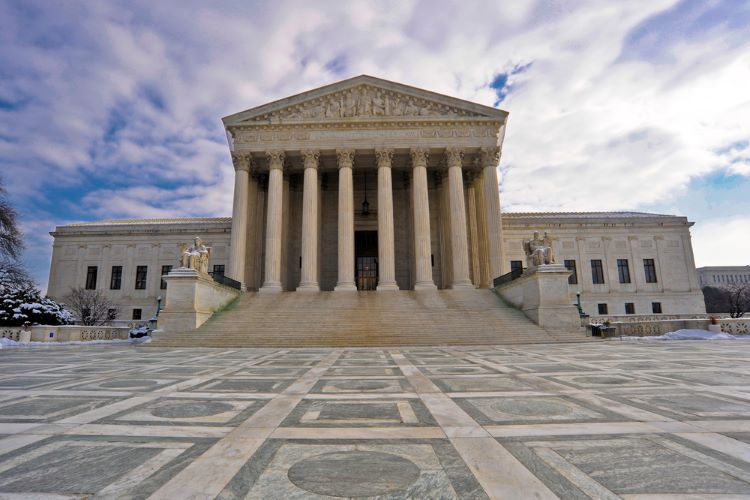[ad_1]
U.S. Supreme Court
SCOTUS justices discuss Supreme Court’s legitimacy, lengthy path to law license

Chief Justice John Roberts said the U.S. Supreme Court has always decided controversial cases, and its decisions have always been the subject of “intense criticism.” Image from Shutterstock.
Chief Justice John Roberts acknowledged Friday that it was “gut-wrenching” to see barricades surrounding the U.S. Supreme Court without speaking directly about the abortion-rights issue that led to the placement.
Roberts said the high court has always decided controversial cases, and its decisions have always been the subject of “intense criticism.” That’s “entirely appropriate,” Roberts said.
But controversial decisions should not lead to questions about the legitimacy of the court, Roberts said during an appearance at a bench and bar conference in Colorado Springs for the 10th U.S. Circuit Court of Appeals at Denver.
Publications covering Roberts’ remarks include the Washington Post, Bloomberg Law and the Associated Press. How Appealing links to additional coverage.
The Supreme Court barricades were put in place following the leak of a draft abortion opinion in Dobbs v. Jackson Women’s Health Organization. The actual decision released in June overruled overruled the abortion-rights opinions Roe v. Wade and Planned Parenthood v. Casey.
Public approval for the Supreme Court decreased to 38% after the court released the Dobbs opinion, according to a poll by the Marquette University Law School cited by Bloomberg Law. But Roberts said it’s the court’s job to decide cases despite public disapproval.
“You don’t want the political branches telling you what the law is. And you don’t want public opinion to be the guide of what the appropriate decision is,” Roberts said, according to the Washington Post. “Yes, all of our opinions are open to criticism. In fact, our members do a great job of criticizing some opinions from time to time. But simply because people disagree with an opinion is not a basis for criticizing the legitimacy of the court.”
Roberts said the barricades will be down when the court meets on the first Monday of October, and the court will be open to the public following a pandemic closure that began in March 2020.
Speaking Thursday at the same bench and bar conference, Justice Neil Gorsuch said it was “terribly important” to identify the person who leaked the draft abortion opinion. An internal committee is conducting an investigation, “and we’re looking forward to their report, I hope soon,” Gorsuch said.
Bloomberg Law and the Wall Street Journal have coverage.
Gorsuch also discussed the cost and the length of legal education, according to the Wall Street Journal, which was noted by Above the Law.
“Does it really require seven years of collegiate education to become a competent lawyer?” Gorsuch asked.
He said legal education is prolonged because would-be lawyers have to take classes in areas in which they have no intention to practice.
[ad_2]




